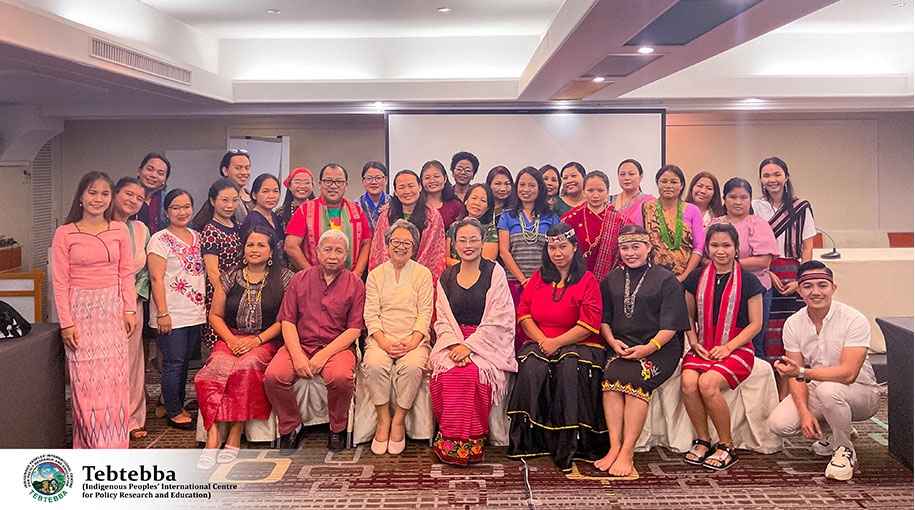“We are political actors.”
Baguio City, Philippines--Eleanor Dictaan-Bang-oa, coordinator of the Indigenous Women Programme of Tebtebba and secretariat member of the Asia Indigenous Women’s Network (AIWN), emphasized that indigenous women are actively doing different initiatives as political actors during the Capacity Building and Strategy Meeting of Indigenous Women in Asia held on November 13-15 in Bangkok, Thailand.
Twenty-four (24) indigenous women from 11 Asian countries participated in the meeting that aimed to enhance the capacities of indigenous women towards their self-determined and sustainable development.
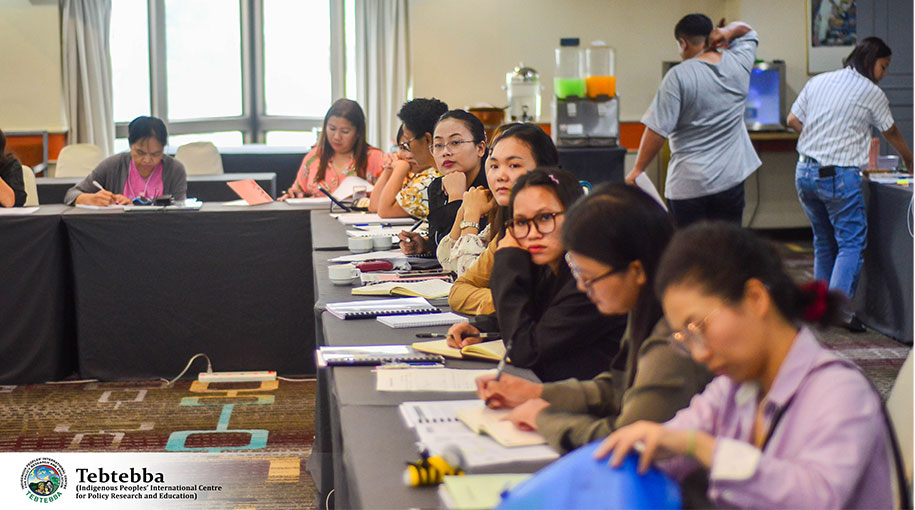
During the opening session, Victoria Tauli-Corpuz, executive director of Tebtebba and convenor of the Asian Indigenous Women’s Network (AIWN), emphasized the importance of upholding equality among men, women, LGBTQI+ and others. “We know that the issues of indigenous women are sensitive but we have standards that we must uphold, the equality between men and women, the LGBTQI+, and others,” she said.
Tauli-Corpuz also highlighted the significance of the participation of indigenous women in the World Conference of Women in Beijing in advancing their human rights and in the achievement of the Sustainable Development Goals (SDGs). She noted the challenges in disseminating the information about the Goals globally and in reaching geographically isolated and disadvantaged areas (GIDAs) where most indigenous peoples reside.
Emphasizing specific targets with reference to indigenous peoples, Tauli-Corpuz acknowledged the inadequacy of efforts to achieve the SDGs within the stipulated timeframe. “In the report, it says we cannot achieve these goals but possible only over a longer period of time,” she added.
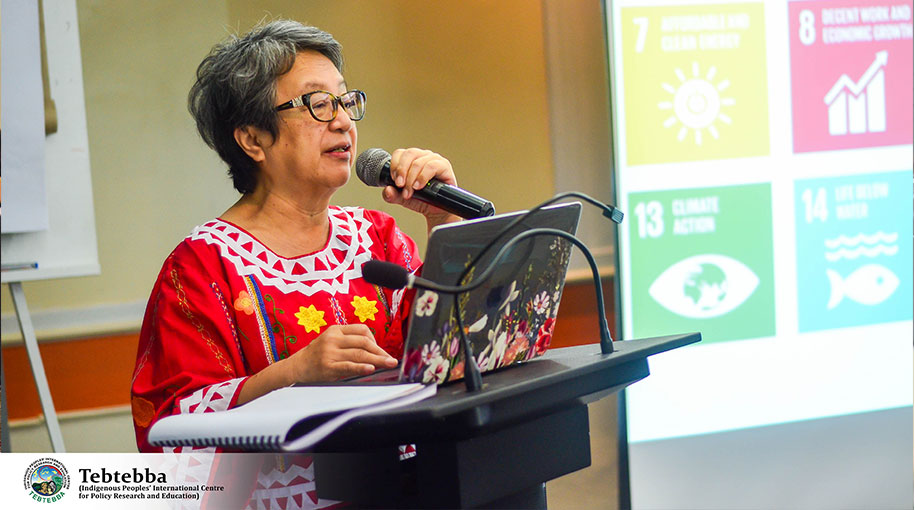
In addition, Dictaan-Bang-oa discussed the salient provisions of Convention on the Elimination of All Forms of Discrimination against Women (CEDAW) General Recommendation No. 39 on the Rights of Indigenous Women and Girls adopted in 2022.
She noted that efforts and initiatives are underway to disseminate GR No. 39, including its widespread dissemination among indigenous women and girls (IWGs), indigenous peoples, as well as states and their agencies, and the use GR No. 39 as an advocacy tool for indigenous women and indigenous peoples at the different levels.
As part of the meeting, Helen Biangalen-Magata of the Climate and Biodiversity Programme of Tebtebba, through a virtual presentation, provided historical contexts and updates on the global discussions on climate change within the auspices of the United Nations Framework Convention on Climate Change (UNFCCC). She highlighted gains and achievements of indigenous peoples along with their continuing efforts to push for the inclusion of indigenous people's rights in climate adaptation and mitigation measures.
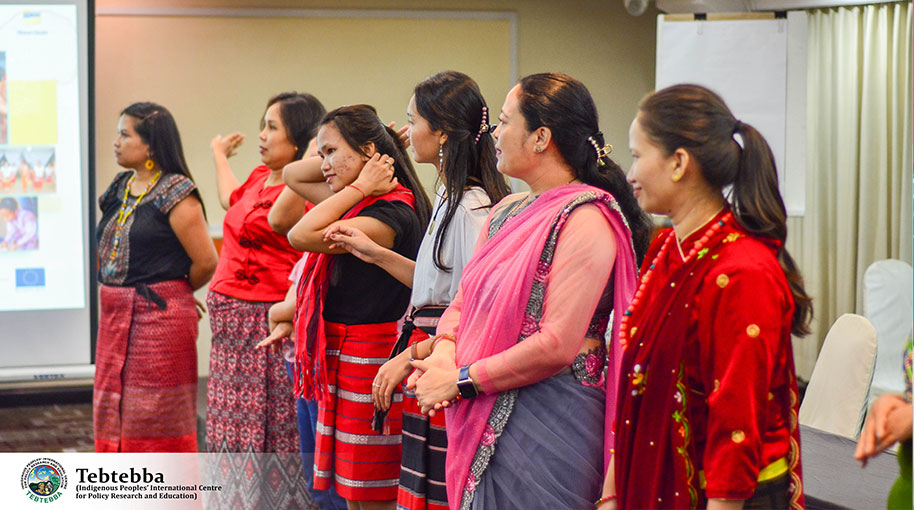
Similarly, Abigail Kitma, also of the Climate and Biodiversity Programme of Tebtebba, provided through a virtual presentation updates from the processes of the United Nations Convention on Biological Diversity (UNCBD). She discussed the Kunming-Montreal Global Biodiversity Framework (KMGBF) as well as the Gender Plan of Action of the CBD.
As part of enhancing the communications skills of the participants to be able to create and share their community data effectively, Jimrex Calatan, communications and outreach staff of Tebtebba, provided basic guidelines on news writing and journalism. Equally, Gideon Ammang, multimedia and communication staff of Tebtebba, conducted a hands-on workshop on creating advocacy materials like picture quotes and infographics using Canva, an online design graphic platform that is used to create social media graphics and presentations. He also shared basic tips on photography and videography to effectively capture highlights of activities.
An important part of the meeting, the participants mapped their different initiatives on sustainable development, on climate change and biodiversity and on advancing their human rights as indigenous peoples and as indigenous women. Some also shared their inputs to the draft action plan of the International Indigenous Women’s forum (IIWF-FIMI) towards the effective implementation of CEDAW GR. No. 39.
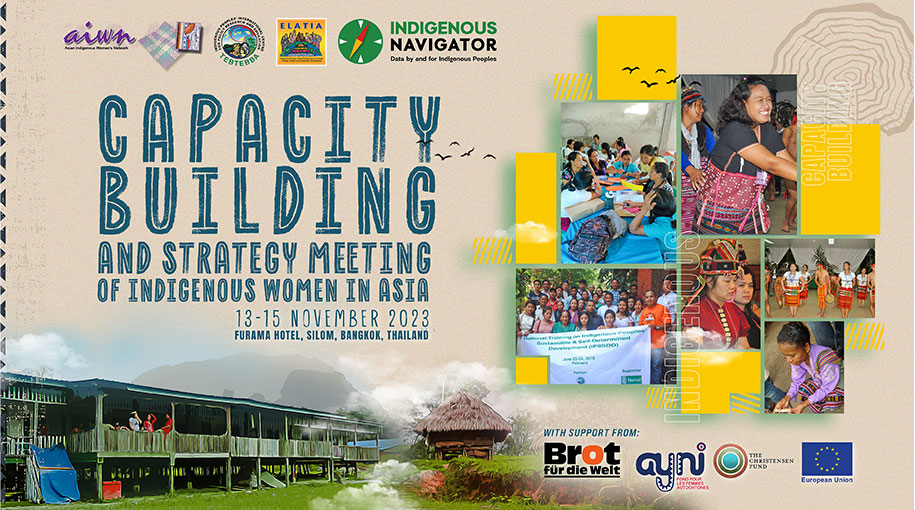
In conclusion, Tauli-Corpuz highlighted several aspects crucial for indigenous peoples to continue their advocacy effectively, including building capacity on awareness raising, advocacy, communications, constructive dialogues, and research. “Try to put much more work on awareness raising. We need more women who are empowered, who can occupy positions from local to international levels,” she emphasized.
The activity was jointly implemented by Tebtebba, Asia Indigenous Women’s Network, ELATIA Partnership, and the Indigenous Navigator Initiative. It was supported by AYNI, Bread for the World, the European Union, and The Christensen Fund.


